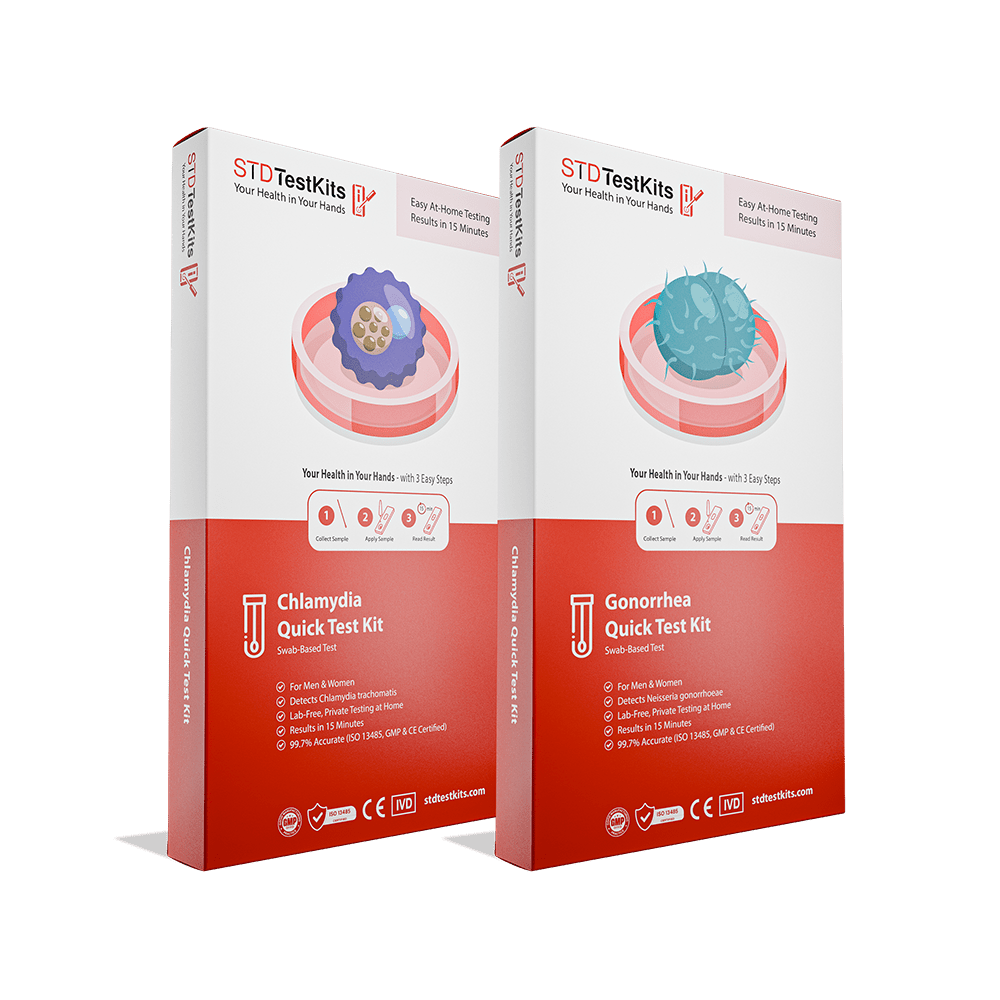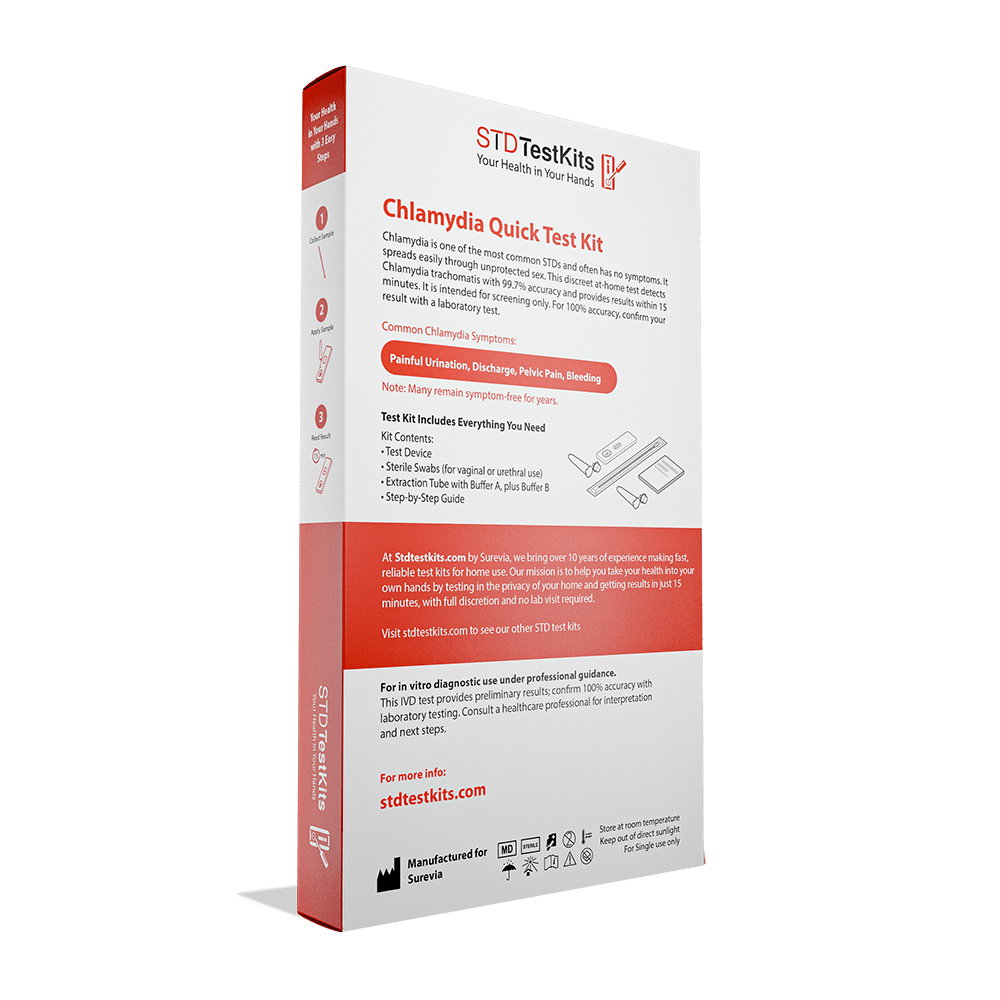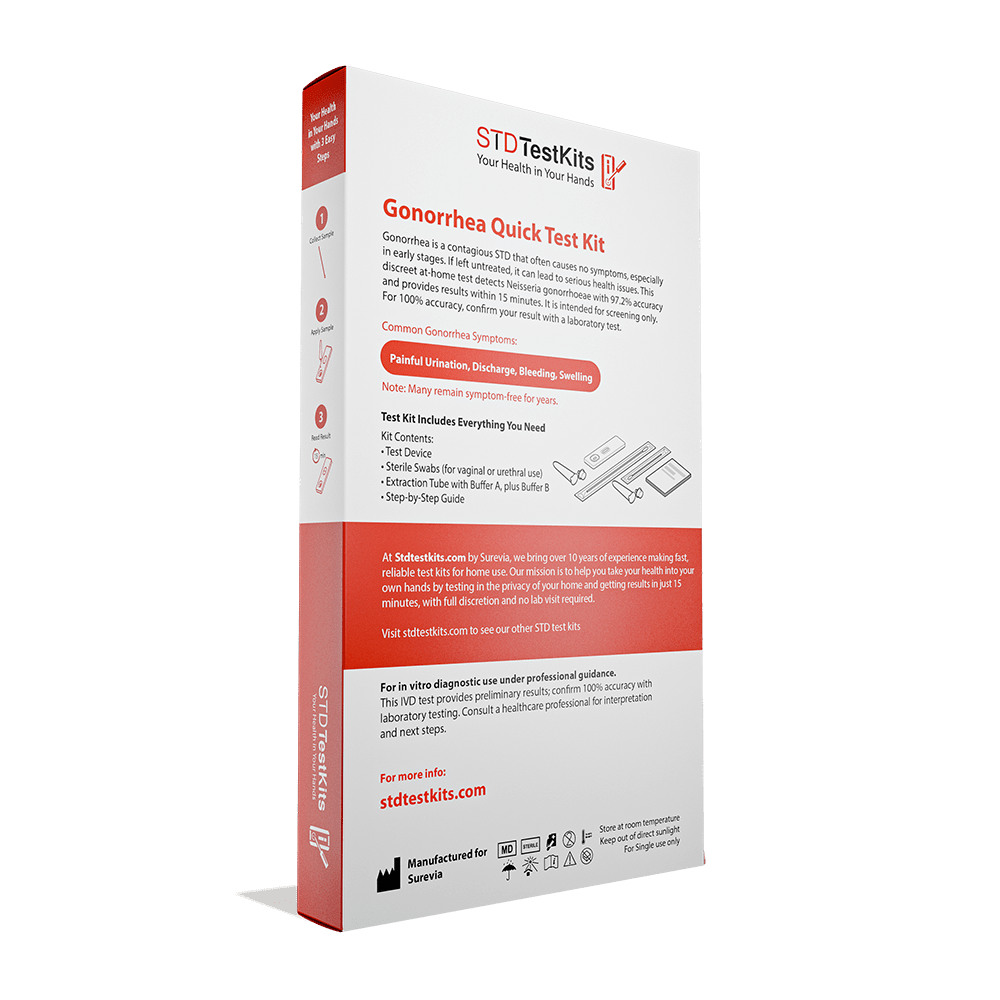Chlamydia and Gonorrhea are two of the most common bacterial STDs, often occurring together and producing similar symptoms. Both infections can silently damage the reproductive system, especially in women, and may go completely unnoticed for weeks or months. If left untreated, they can lead to infertility, pelvic inflammatory disease (PID), or serious complications in men such as epididymitis. Early testing and treatment are key to stopping the spread and preventing long-term damage.
Our Chlamydia & Gonorrhea At-Home Combo Test Kit screens for both infections at once using a self-collected vaginal swab (women) or urine sample (men). The kit includes two rapid test cassettes, one for Chlamydia trachomatis, the other for Neisseria gonorrhoeae, and delivers accurate results in just 15 minutes each. With >98% sensitivity and specificity in clinical studies, this test offers lab-grade performance from the privacy of your home. Fully certified (ISO 13485, CE) and shipped in plain packaging, it’s a fast, discreet way to check your status.
Symptoms & Complications
Asymptomatic: Most infections cause no symptoms, especially in women. Silent infections can still spread to others and damage fertility over time.
Mild: Common symptoms include painful urination, unusual vaginal or penile discharge (white, yellow, or green), mild pelvic discomfort, or bleeding between periods. Oral infections may cause sore throat.
Severe: Untreated infections can lead to PID (in women), infertility, ectopic pregnancy, or chronic pelvic pain. In men, complications include testicular pain, swelling, or bloodstream infection (in severe gonorrhea cases).
Untreated Risks
Both Chlamydia and Gonorrhea are easily curable with antibiotics, but if missed, they can cause irreversible damage to the reproductive tract. Infected mothers can pass either infection to their newborn during delivery, potentially causing eye infections or pneumonia (Chlamydia) or blindness (Gonorrhea). Both also raise the risk of acquiring HIV due to inflammation in the genital tract.
Early & Repeat Testing Recommended
Window Period Testing: Test 1–2 weeks after potential exposure for reliable detection. If you test negative within the first week but symptoms persist or risk remains, retest after 14 days.
Confirmatory Test: If your test is positive, follow up with a healthcare provider for confirmation and antibiotic treatment. Retest 3 months after treatment to rule out reinfection.
Partner Testing Encouraged: Both infections are easily passed between partners. If you test positive, your partner should test and treat too. Untreated partners may reinfect you even after you’ve completed treatment.
How It Works
Collect Sample: Women use a self-inserted vaginal swab. Men use a gentle urethral swab.
Apply & Wait: Swirl the swab or urine sample in the provided solution, then add drops to each test cassette. Let sit for 15 minutes.
Read Results: Each cassette has a control line. Two lines = positive, one control line = negative. Clear instructions guide you through interpretation.
Take the guesswork out of STD screening with our 2-in-1 Chlamydia & Gonorrhea At-Home STD Test Kit. Quick, accurate, and private, it’s the smart way to get peace of mind in one session. If you test positive, seek prompt treatment and notify partners to stop the spread. Stay informed, stay healthy.



















